Are you feeling overwhelmed with your academic workload and considering a term extension? You're not alone; many students face challenges that can hinder their progress. In this article, we will guide you through crafting a compelling petition to request an extension for your academic term. So, if you're ready to take the next step and learn how to present your case effectively, keep reading!
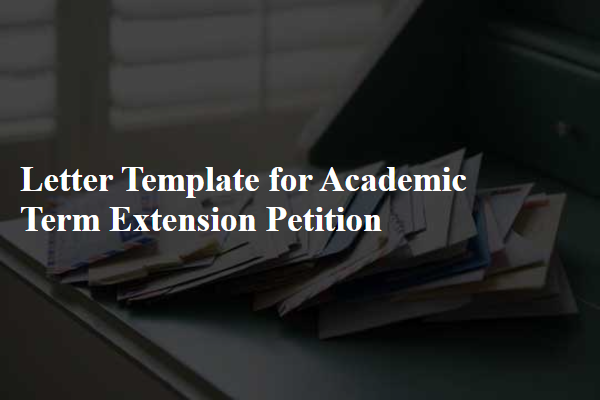
Personal information and contact details
An academic term extension petition often requires detailed personal information to ensure proper processing and communication. This should include full name, student identification number, current academic program (such as Bachelor of Science in Biology), and institutional affiliation (like State University). Contact details should comprise a valid email address (e.g., firstname.lastname@university.edu) and a phone number (format: +1-555-123-4567). Including a permanent address (e.g., 123 College Ave, City, State, Zip Code) helps in formal communication. Such information is crucial for the university administration to verify identity and facilitate correspondence regarding the petition.
Reason for extension request
Students seeking an academic term extension may encounter various circumstances that warrant additional time to complete their coursework. Common reasons include medical emergencies impacting mental and physical health, unforeseen family crises such as illness or loss, and significant workload increases due to extracurricular commitments or job responsibilities. Moreover, students may face unexpected challenges related to course material or adjustments in learning formats, particularly in the wake of the global shift to online learning environments. Institutions often require detailed documentation to substantiate these requests, ensuring fair evaluation and maintaining academic integrity. Promptly addressing these issues can significantly aid in a student's academic trajectory and overall well-being.
Supporting documentation or evidence
Students seeking an academic term extension often require extensive supporting documentation to substantiate their petitions. Essential forms of evidence include medical records from licensed healthcare professionals confirming illnesses or conditions, official letters from employers documenting work commitments, and academic performance history showing previous coursework completion. Additionally, personal statements outlining the specific challenges faced, such as family emergencies or unexpected life events, may strengthen the petition. It may also be beneficial to include transcripts highlighting good standing prior to the current term, along with correspondence with academic advisors regarding the situation. Proper organization and clarity in presenting this documentation can significantly influence the decision-making process.
Specific extension period requested
Academic term extensions request often arise for various reasons such as medical emergencies or personal challenges. Students seeking extensions typically provide a specific period for which they need additional time. For instance, a student may request a two-week extension from April 1 to April 15, allowing them to complete assignments or prepare for exams without compromising the quality of their work. Supporting documentation, such as medical records or personal statements, is commonly required, ensuring that institutions can assess the validity of the request appropriately. Institutions often evaluate these petitions based on academic policies and individual circumstances, aiming to maintain academic integrity while providing necessary support to students.
Polite closing and expression of gratitude
Completing a term extension petition requires careful consideration of language that conveys respect and appreciation. A polite closing may include expressions such as "Thank you for considering my request" or "I appreciate your understanding and support." An acknowledgment of the recipient's time and effort can further enhance the message, emphasizing gratitude with phrases like "I am sincerely grateful for your attention to this matter" or "Your assistance greatly aids my academic journey." Ending on a hopeful note, such as "I look forward to your favorable response," can encourage a positive outcome while maintaining professionalism.
Letter Template For Academic Term Extension Petition Samples
Letter template of academic term extension application due to health issues
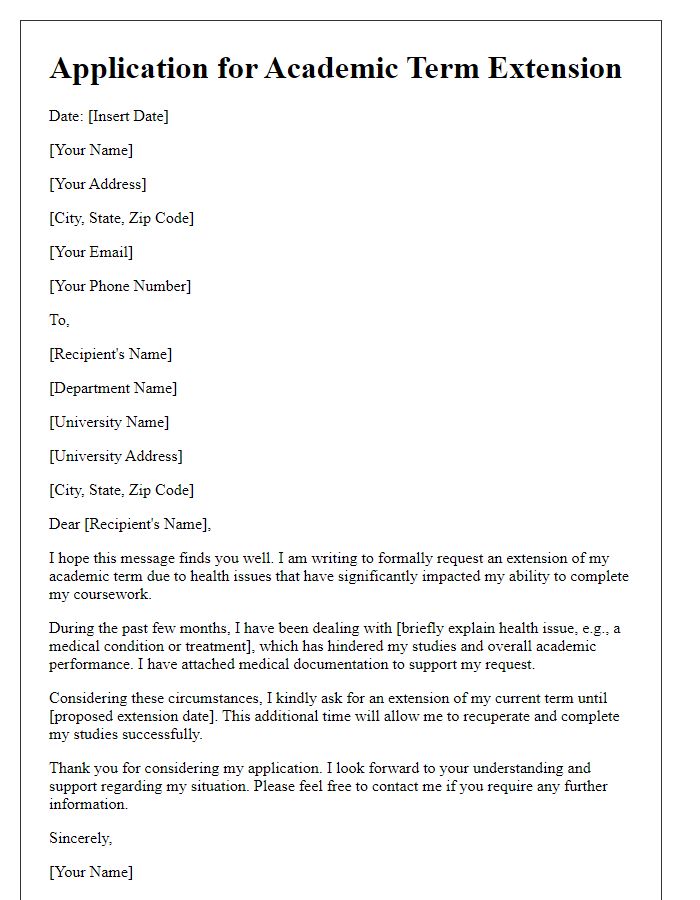
Letter template of academic term extension inquiry for academic performance struggles
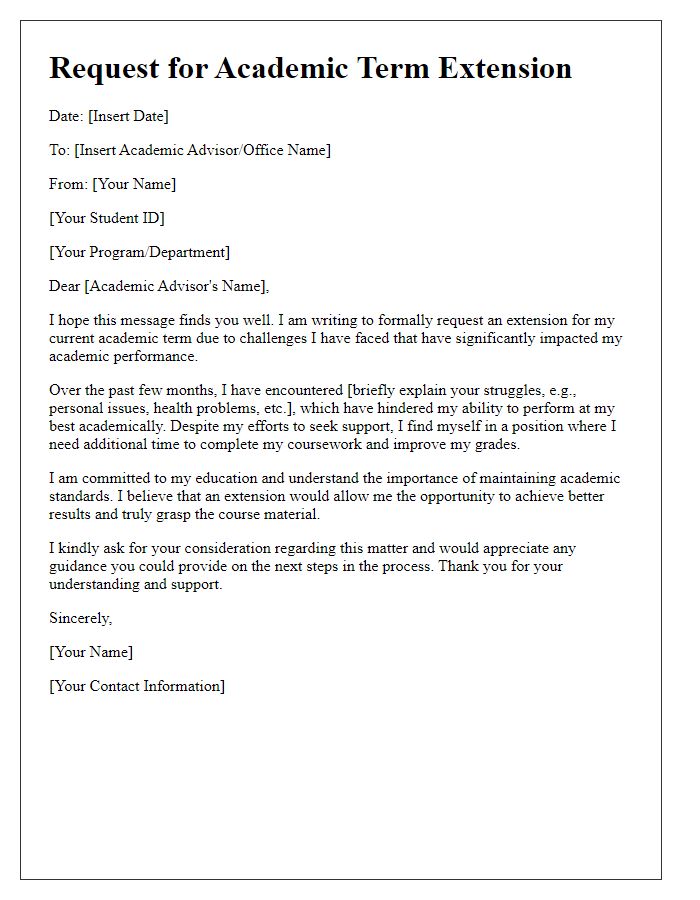
Letter template of academic term extension appeal for family emergencies
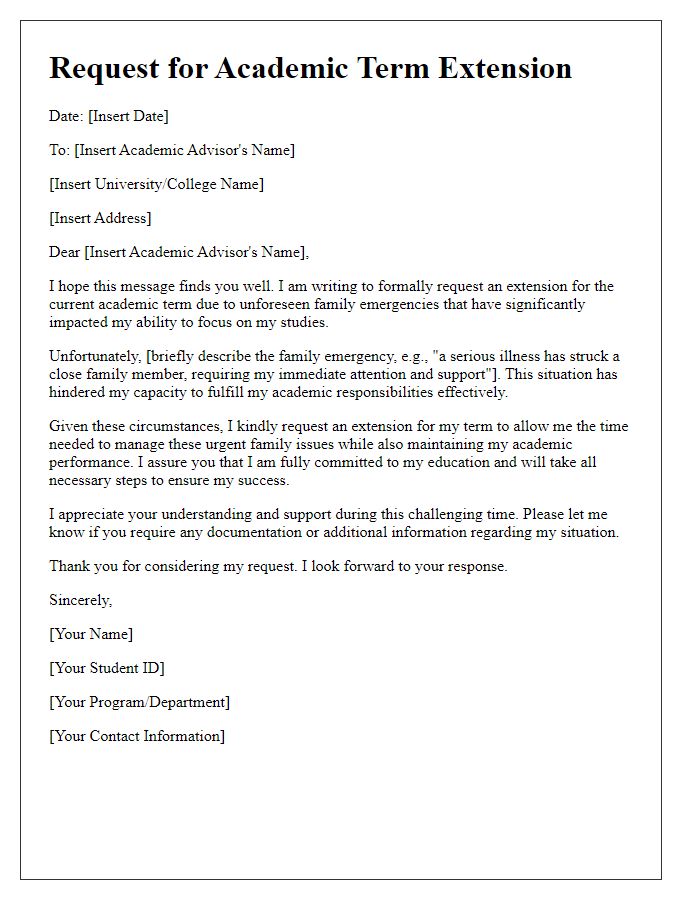
Letter template of academic term extension justification for internship opportunities
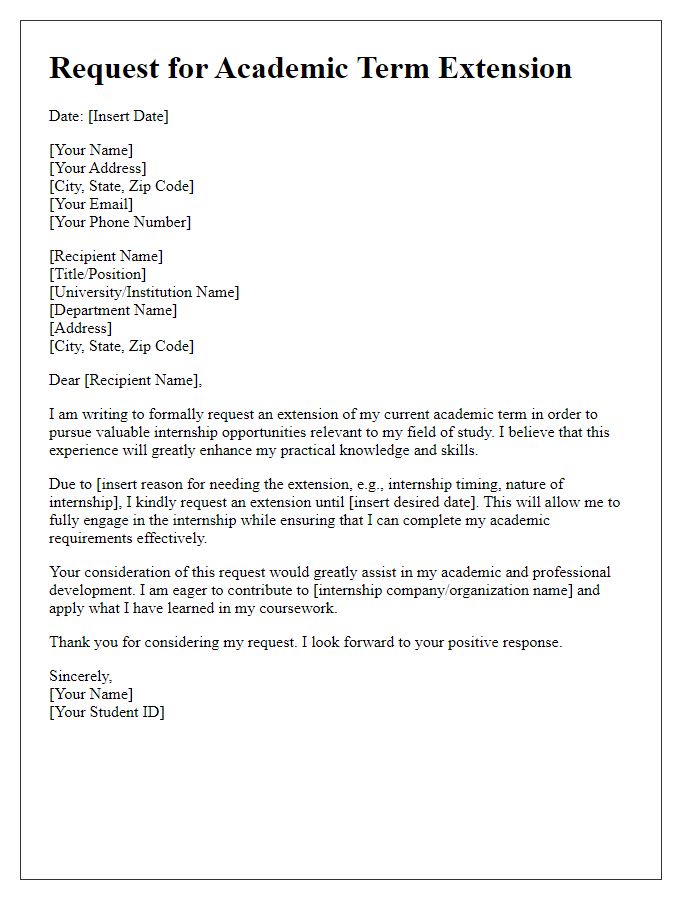
Letter template of academic term extension form for financial difficulties
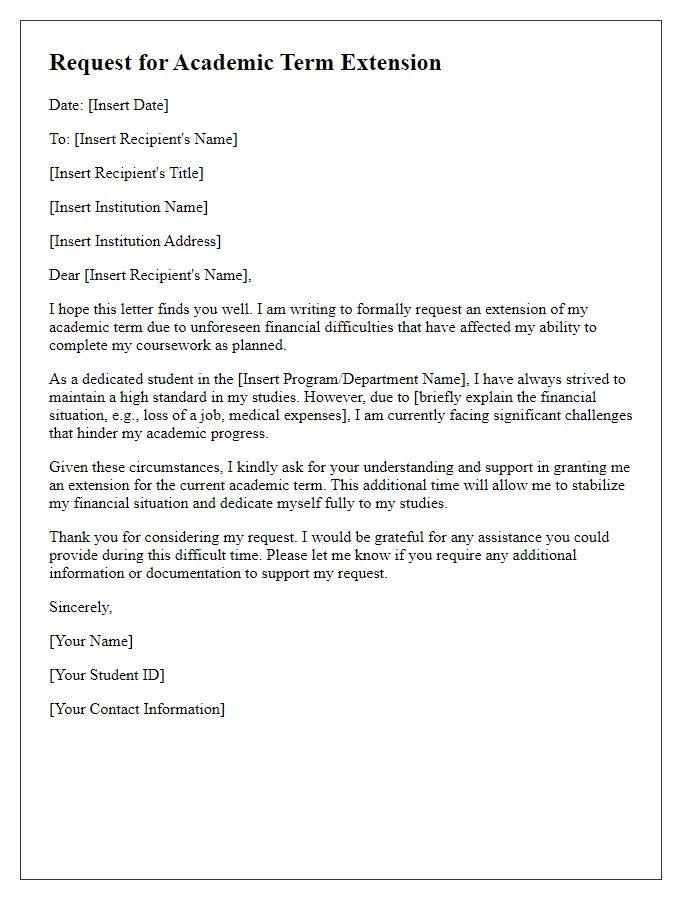
Letter template of academic term extension discussion for research project delays
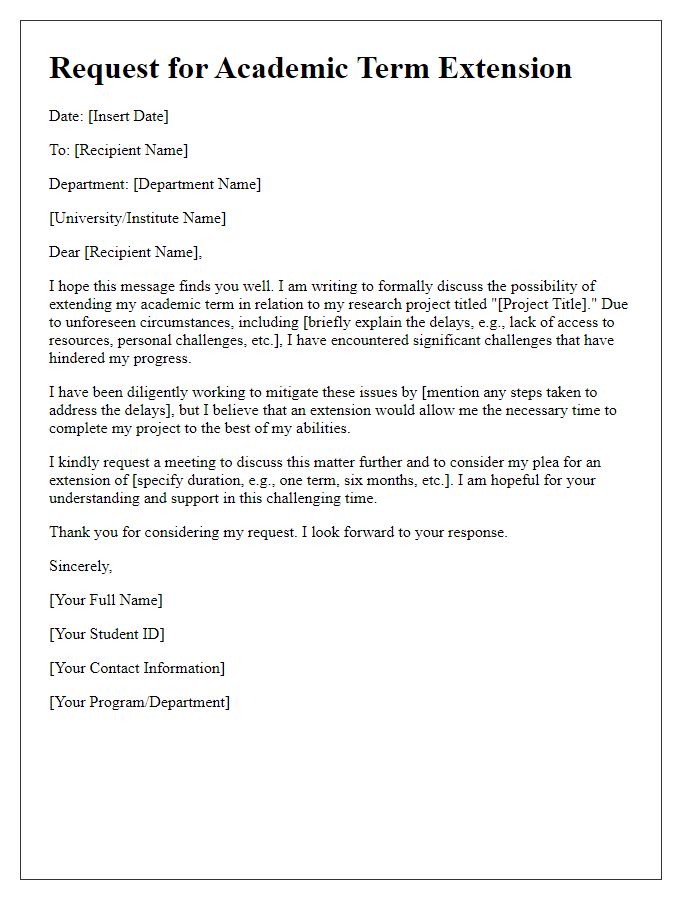
Letter template of academic term extension submission for work commitments
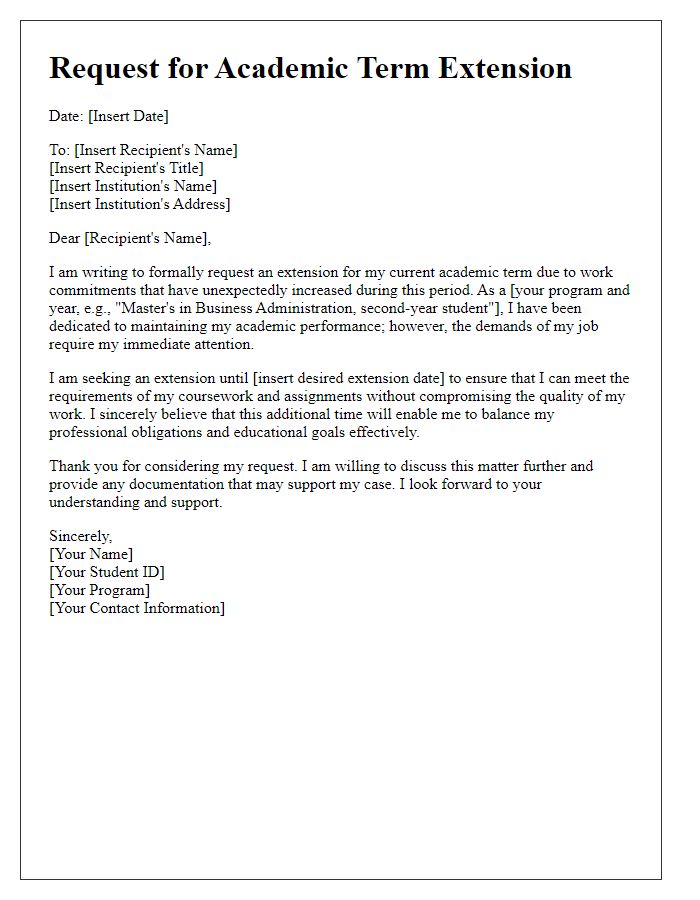
Letter template of academic term extension notification for course load adjustment
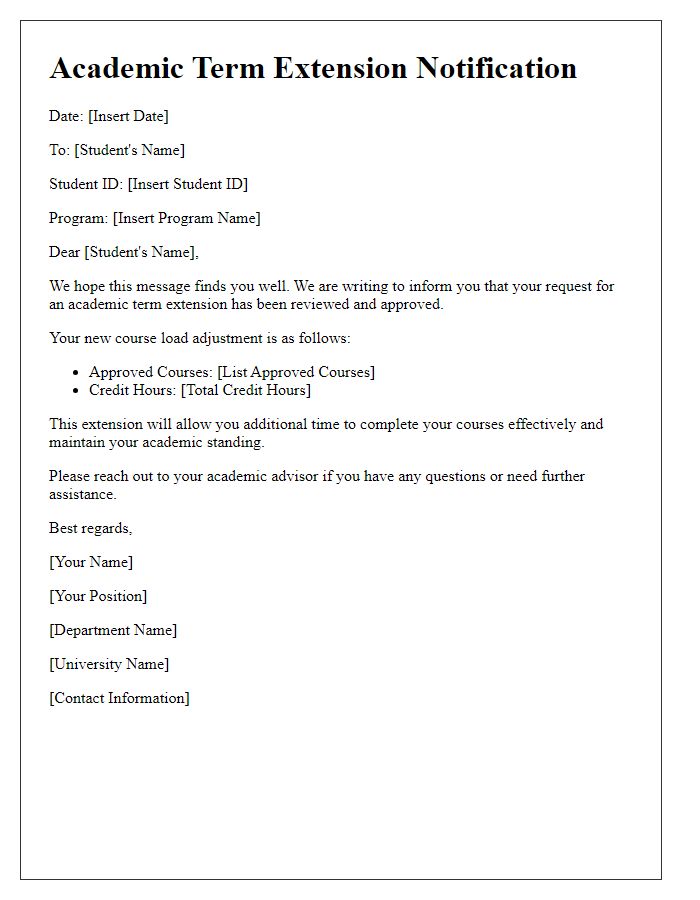

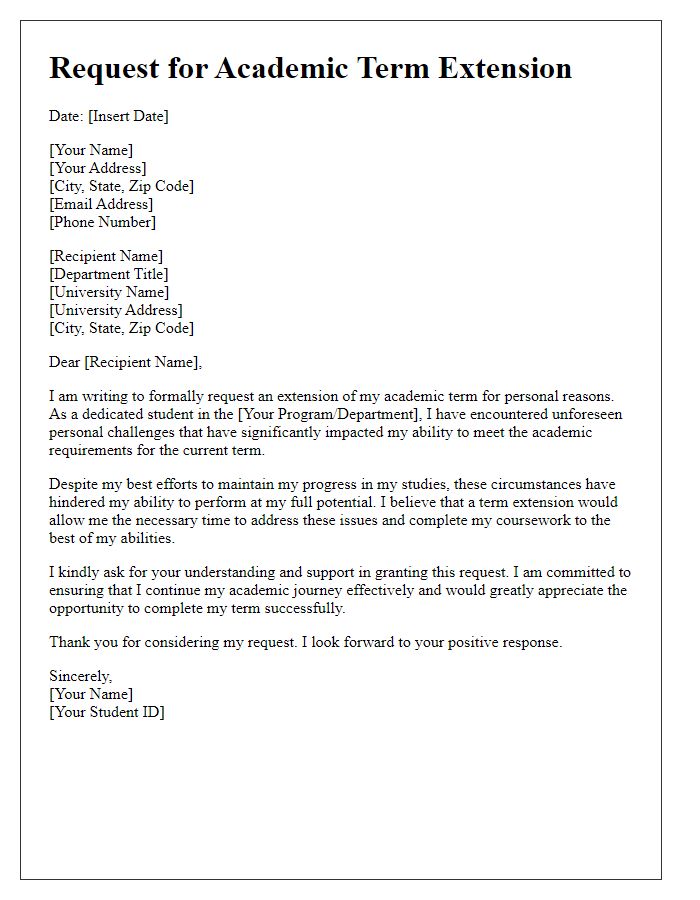
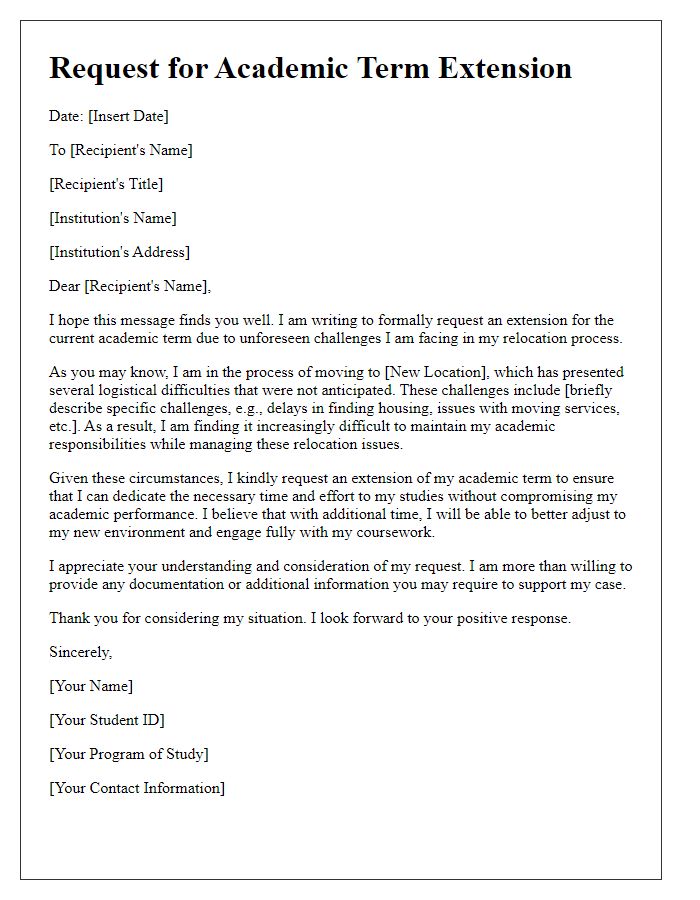


Comments